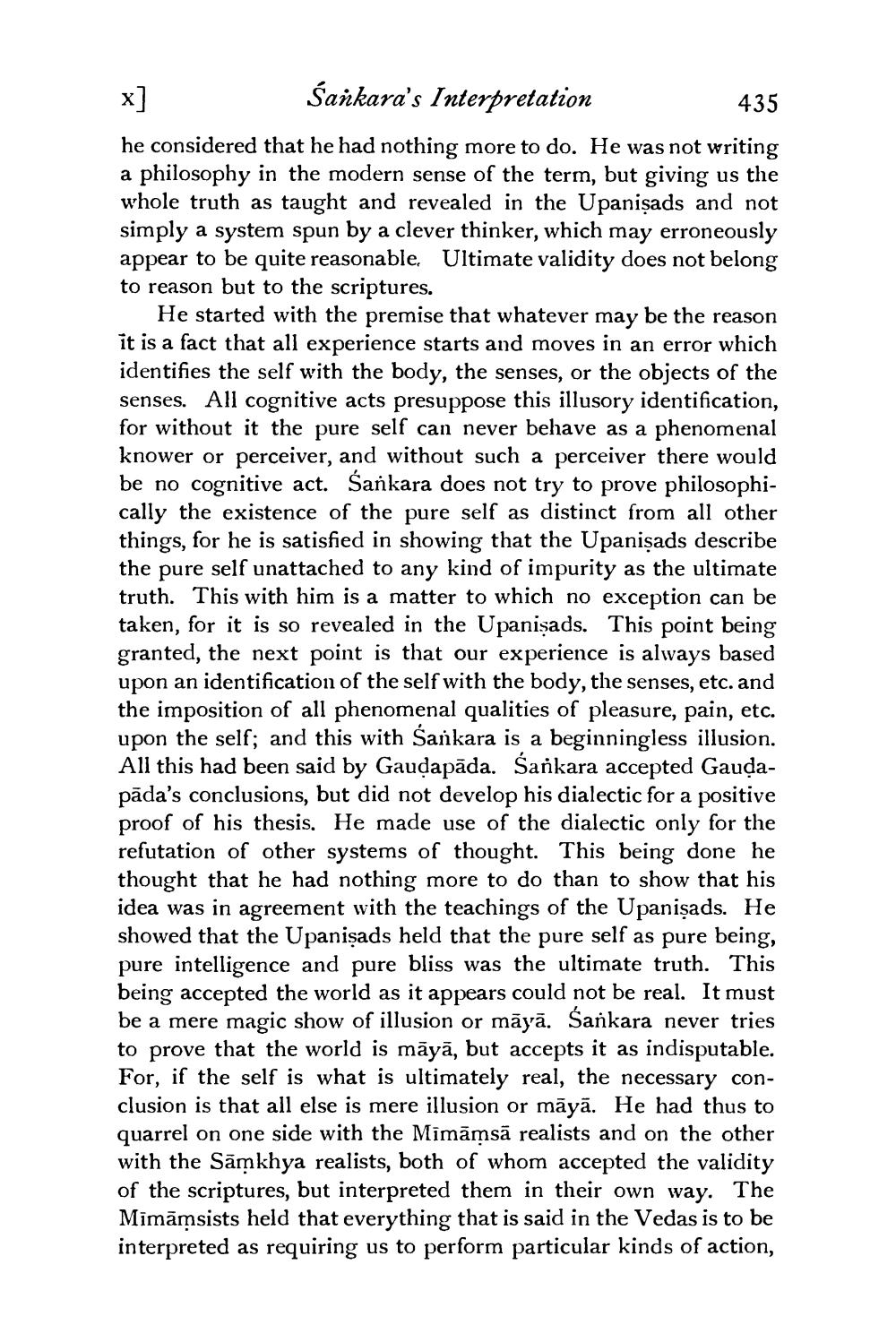________________
x]
Sankara's Interpretation
435
he considered that he had nothing more to do. He was not writing a philosophy in the modern sense of the term, but giving us the whole truth as taught and revealed in the Upaniṣads and not simply a system spun by a clever thinker, which may erroneously appear to be quite reasonable. Ultimate validity does not belong to reason but to the scriptures.
He started with the premise that whatever may be the reason it is a fact that all experience starts and moves in an error which identifies the self with the body, the senses, or the objects of the senses. All cognitive acts presuppose this illusory identification, for without it the pure self can never behave as a phenomenal knower or perceiver, and without such a perceiver there would be no cognitive act. Śankara does not try to prove philosophically the existence of the pure self as distinct from all other things, for he is satisfied in showing that the Upanisads describe the pure self unattached to any kind of impurity as the ultimate truth. This with him is a matter to which no exception can be taken, for it is so revealed in the Upanisads. This point being granted, the next point is that our experience is always based upon an identification of the self with the body, the senses, etc. and the imposition of all phenomenal qualities of pleasure, pain, etc. upon the self; and this with Sankara is a beginningless illusion. All this had been said by Gauḍapada. Sankara accepted Gaudapada's conclusions, but did not develop his dialectic for a positive proof of his thesis. He made use of the dialectic only for the refutation of other systems of thought. This being done he thought that he had nothing more to do than to show that his idea was in agreement with the teachings of the Upaniṣads. He showed that the Upanisads held that the pure self as pure being, pure intelligence and pure bliss was the ultimate truth. This being accepted the world as it appears could not be real. It must be a mere magic show of illusion or māyā. Šankara never tries to prove that the world is māyā, but accepts it as indisputable. For, if the self is what is ultimately real, the necessary conclusion is that all else is mere illusion or māyā. He had thus to quarrel on one side with the Mimāmsã realists and on the other with the Samkhya realists, both of whom accepted the validity of the scriptures, but interpreted them in their own way. The Mimāmsists held that everything that is said in the Vedas is to be interpreted as requiring us to perform particular kinds of action,




